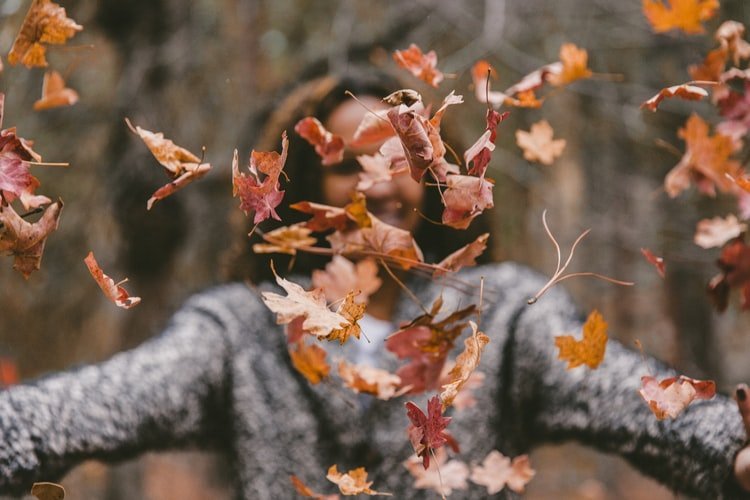Allergies affect over 20 million adults and 6 million kids in the US each year. While spring is generally the worst allergy season, many people suffer from allergies in the fall.

Fall allergies are caused by the same trigger as spring allergies: pollen. However, some plants produce more pollen in the fall than in the spring or summer.
Knowing where these plants grow and when they start pollinating can help you predict a fall allergy flare-up. The Midwest and east coast have the worst fall allergies, according to Mahboobeh Mahdavinia, MD, an associate professor of allergy and immunology at Rush University Medical Center.
Here’s our guide to preventing and treating seasonal allergies.
Why do we get allergies?
Pollen and irritants that cause allergies in the fall include:
Weeds
The American College of Allergy, Asthma and Immunology claims ragweed pollen causes allergies in over 23 million people each year. Pollen counts peak in mid-September, and the wind can carry it 700 miles.
As a result, ragweed is a bothersome fall allergen. North America has 17 species of hardy soft-stemmed plants, mostly found in the east and midwest.
Common ragweeds:
- Sunflowers
- Goldenrods are a type of wildflower.
- Sage, Zinnias, Rabbit brush
- Burweed elders
“We traditionally refer to trees as spring, grass as summer, and weeds as fall,” says Matthew Ellison, MD, assistant professor of head and neck surgery at Duke. “That weed could be any number of things. Some areas lack ragweed, but other weeds pollinate in the fall.”
Other weeds that cause allergies in the fall are:
- Pigweed
- Wormwood
- Lamb’s quarters
Grasses
According to the Asthma and Allergy Foundation of America, Wormwood Grasses pollen can travel hundreds of miles on the wind.
Ellison notes that grasses can cause allergies in warmer climates like the South because they pollinate in the cool autumns and winters.
Temperate grasses that cause fall allergies
- Bluegrass
- Bentgrass
- Ryegrass
Molds
Mold is another common allergen for autumn. Leaky roofs, windows, and pipes encourage indoor mold growth. Mold can grow on carpet, drywall, fabric, and upholstery.
Mold, especially in the fall, can aggravate allergies. Falling leaves cause mold growth on decomposing plant matter. As raking leaves disturbs the leaves, mold spores are released into the air and up the nose, causing allergic reactions.
A face mask, like the N95 mask, can help prevent allergies caused by mold spores when raking leaves, gardening, or mowing the lawn.
Atopic dermatitis
Grass, weed, and mold pollen can cause allergic rhinitis, or hay fever.
Allergy symptoms include:
- Sneezing
- Nasal blockage
- Irritated, watery eyes
- Sneezing
- Headaches
- Rashes on the Cough
- Hives
Fall allergy treatment
Seasonal allergy treatment has several pillars, says Ellison. These are:
- Avoidance. If you’re sensitive to plants that pollinate in the fall, avoid going outside as much as possible. If you go outside, take a shower to wash off pollen and reduce the risk of bringing allergens inside.
- Medication. Allergic reactions such as a runny nose, itchy eyes, and sinus congestion are relieved by antihistamines like Claritin or Zyrtec. Nasal sprays like Flonase can help relieve nasal congestion.
- Immunotherapy. Allergy shots or drops They’re a long-term allergy solution, but not for everyone. Read whether allergy shots are worth it for you.
- Surgery Ellison says septoplasty surgery can help those who don’t respond to medication. These procedures can improve breathing.
There are many natural allergy remedies available to help relieve symptoms. Ellison recommends saline nasal washes or sprays, which are salt-based solutions designed to clear mucus and moisturize the area.
A 2018 study found that saline sprays can help relieve allergic rhinitis in adults and children.
Another study found no side effects from daily saline nasal irrigation. However, decongestants like Afrin or Neosynephrine can be habit-forming and harmful to your sinuses, according to Ellison.
Ellison does not recommend herbal or homeopathic remedies due to a lack of clinical evidence. Overall, Mahdavinia recommends treating fall allergies with antihistamines.
Dr. Mahdavinia recommends daily non-sedating antihistamines. “Those with more severe symptoms require intranasal medications. To be effective, allergy treatments should be started before allergens peak.”
Observation
If you have seasonal allergies, you should start treatment in early September. This will help your treatment work better and lessen the severity of your symptoms.
As winter approaches and morning temperatures drop below 50°F, your outdoor allergen allergies should subside. Mold can persist until the frost, says Mahdavinia.

